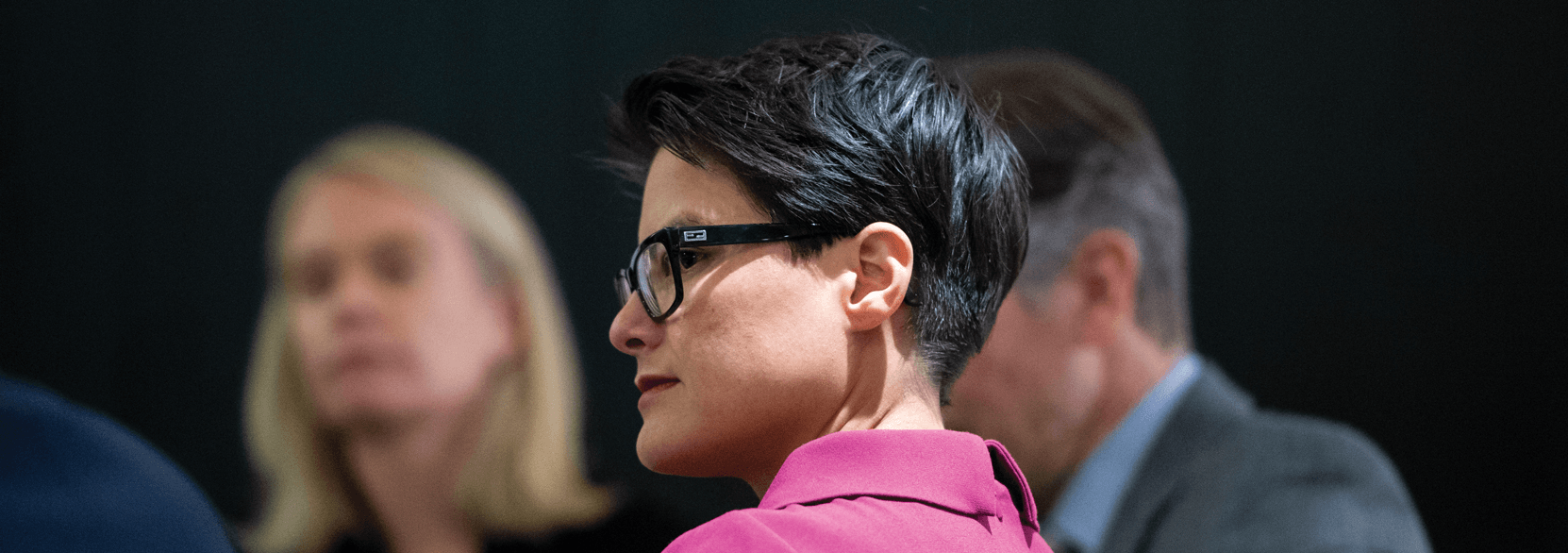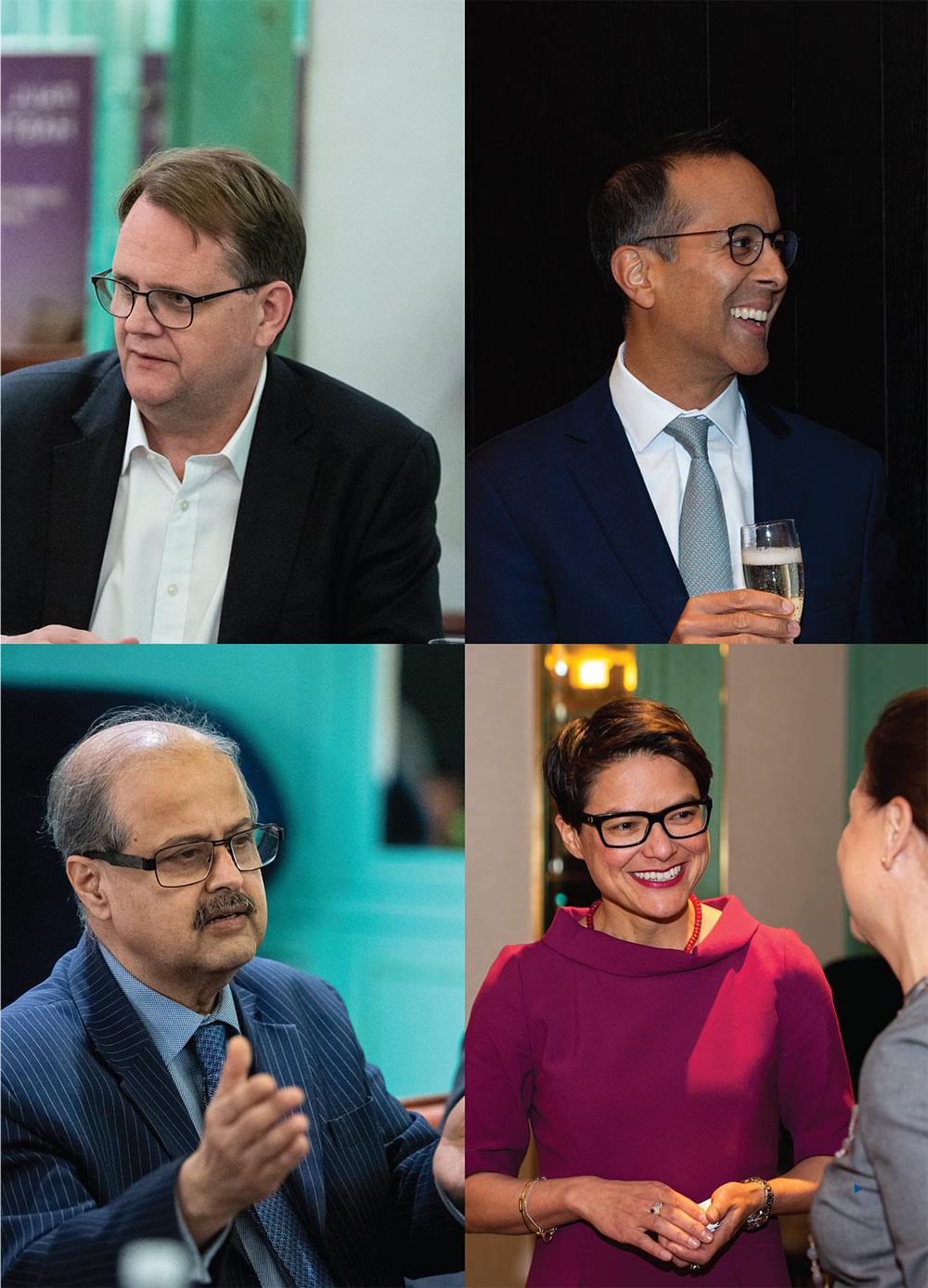Alex Novarese, The In-House Lawyer: It has been a record period for Asian activity into Europe. How do you see the general trends?
Abhijit Mukhopadhyay, Hinduja Group: China is an issue, because the main difference between the Asian companies, European companies and Chinese companies is that Chinese companies are directly or indirectly state-owned.
The second part of the story is their motives are under question. That is why you find in Germany the government putting up new rules. In Britain, it is looked at with suspicion and we are seeing what has happened with the London Stock Exchange [recently subject to a bid from Hong Kong Exchanges and Clearing].
Roger Barron, Paul Hastings: We talk about the trade wars. One of the ideas coming out is that the Trump administration is forcing people to not do business with certain entities. It feels there is a political side of things even before we get to regulatory hurdles.
Samantha Thompson, Anglo American: There are now more factors feeding into whether to do a deal. One of them is reputation and that includes the reputation of the counterparty. If you have to go to a shareholder vote, to what extent is reputation a factor? If we were to think of selling a big asset, a mine, for example, we would have to think long and hard about who the counterparty is because…
Roger Barron: … stewardship.
Samantha Thompson: Exactly, it’s not just about the money. It is about sustainability and governance – reputation. Even if you had a counterparty with very good sustainability and other credentials on paper, if it is complicated by the politics of whichever country, it just makes it a harder environment to get the deal done.
Alex Novarese: What would be the red flags for counterparty risk?

Samantha Thompson: Reputation overall, environmental record, track record with communities and employees, not having a proper plan for running the asset… You have to do a lot more due diligence up front about how things are going to be run after you have exited, whoever you’re dealing with.
Paul Harvey, Arma Partners: How do you do due diligence on counterparties?
Samantha Thompson: You might use a law firm. You would use an environmental firm. There are other specialist firms if you have concerns.
Alex Novarese: Are there any other kinds of businesses or sectors where people are particularly concerned?
Parminder Nahl, Wyelands Capital: Industries where IP is a key asset. This certainly seems to be one of the key things that Donald Trump has sought to highlight in his statements about wanting a revised trade deal with China.
Roger Barron: There is a question as to at what point does concern for infrastructure and defence stray into paranoia? You find chips in all sorts of things from fridges to toys. The UK changed their rules and are looking at their ability to intervene in general areas of critical infrastructure. That is happening in Europe too.
That was a time when Europe generally was very open to business. We then had a period when the Cameron/Osborne government were very much encouraging of investment from Asia more broadly and China in particular. We now have strayed from concerns of national security arguably into potential paranoia. Discuss.
Regina Engelstaedter, Paul Hastings: It started with IP. This was the core interest of Asian investors and major concern of governments at the beginning. Today, only very few industries are excluded. Next to IP, it is tech and it is infrastructure. Data has now become a hot topic as well, including privacy of data and data technology.
Abhijit Mukhopadhyay: Over the last 30-35 years, you see a pattern going on. [Chinese companies] have acquired almost all the energy assets in many parts of the world, Africa as well as Latin America. There is a fight going on between India and China on how to acquire which assets, especially the energy assets. [Chinese firms] have acquired a lot of metal exchanges. Now, they are trying for the London Stock Exchange. Half of the major infrastructure here is owned either by the Qataris or the Chinese.
Natalie Salunke, Fleetcor: I find your comment about investment decisions being driven by the acquisition of knowledge rather than purely economical echoes my perceptions. We are seeing that countries are ‘empire building’ in a different way to the past.
Abhijit Mukhopadhyay: It is economic control.
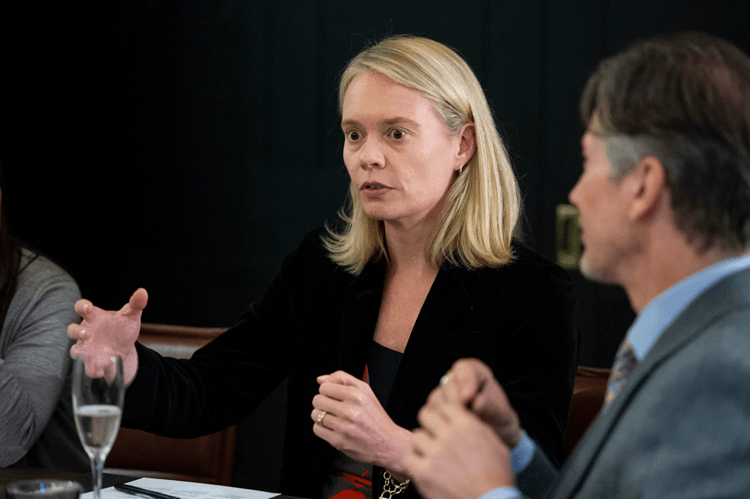
Natalie Salunke: Yes, the empire of knowledge. What I find interesting is the more passive roles of some investment versus your perception that it is a much more active relationship because it is not just a monetary value.
Neel Malviya, Moelis & Company: In late 2015/2016, we worked on six US public M&A deals involving Chinese buyers in a 12-month period. Every single target company had a technology/IP slant and the Chinese buyers were very purposeful about what they were trying to do. Once President Trump was elected, Chinese rules on outbound investment changed and our team suddenly had to reinvent what they did.
Roger Barron: Same here. When the Cameron government handed over to May, there was a definite change of approach. Sonya, what are you saying to your clients?
Sonya Rogerson, Bank of China: People have mentioned trade wars, but there is a very good opportunity here in Europe and people recognise that, despite uncertainty with Brexit. People are being very active in the market, at least in asking lots of questions and scoping for acquisition targets. Certainly, there is a bit of distrust, but it is just [an issue] of education and understanding that there are huge opportunities. People have to be smart about how they partner with the Chinese, understand the differences and try to make it successful.
Alex Novarese: What are the general mistakes that can creep into the process when you have large Asian companies bidding for European assets?
Neel Malviya: When we run sell-side M&A processes, the ease with which deals are done these days is very different to two or three years ago. Every deal is harder to do now. The perception with Chinese buyers seems to be that, while they may be prepared to pay a higher headline price, deal certainty is not there. Frankly, the right advice to the client on the sell side is to consider all bidders, not just the highest bidder. People are often much happier to take the slightly lower bid in exchange for deal certainty.
Roger Barron: We are advising parties on both sides so we find the same issues, whether you are on the buyer’s side or the seller side; basically you need to make sure you are facing up to these concerns early on.
Let us say you are buying in the UK. If you know you are going to have an issue, you go early to the local government authority. You explain it and present your solution to the seller’s side. You cannot just take it at face value. You have to show you have the solution.
Pricing is interesting. I have seen that going both ways. I do not necessarily think there is an execution premium people are willing to pay. What we are advising people is to very much cover that issue off early. Do not leave that to a negotiation on the sale and purchase agreement.
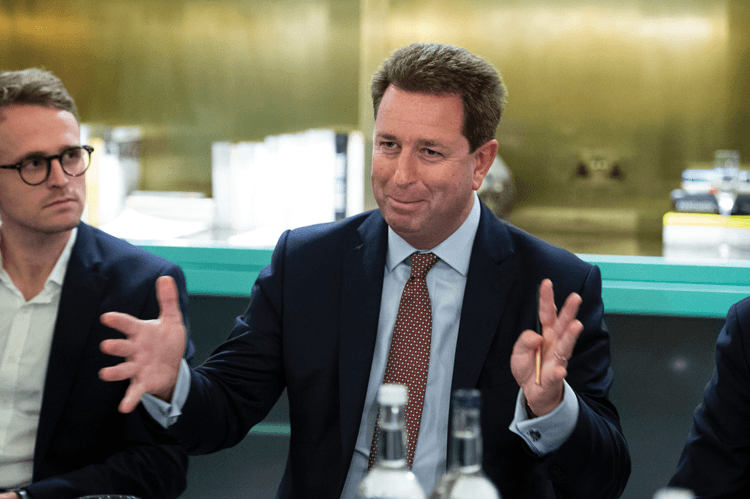
Samantha Thompson: When I was advising Asian clients looking to invest, particularly into the UK, the Takeover Code could throw them completely. ‘What do you mean, “The spirit of the Code”?’
Roger Barron: ‘What happens if you break it?’ Yes.
Samantha Thompson: Exactly. Even when you have gone through that, the concept of what you say to the media, even if it is in your home country, impacting what you can do in the target country is really difficult to manage.
Alex Novarese: Is there any particular way to mitigate confusion around the Takeover Code?
Regina Engelstaedter: It is a question of trust. It is important to establish a really good professional relationship to the client so the client can accept not to understand every piece of a certain regulation but that you can manoeuvre him through it.
Samantha Thompson: The financial adviser can be key.
Roger Barron: You asked an interesting question at the start: ‘Are different types of buyers changing governance and regulation for the future?’ I am going to put it out there as a thesis that the standards of governance and transparency are such that it is no longer good enough to have this middle guy who will sort everything out for you.
Abhijit Mukhopadhyay: Completely true.
Roger Barron: I do not think there will be wholesale changes in powerful countries or players changing regulation. That is not to say they will not have input because the law and the regulatory practice changes all the time by consultation. But I do not think you will find a single player you can strong-arm into it.
Parminder Nahl: Does that point to the fact that, because there is a lack of certainty in who you are dealing with, that stops the potential [deal]?
Roger Barron: That is certainly what people think, but over time will surely increase the level of certainty and the degree of trust you can have in a process because it’s no longer contact based. It is more rules based.
Parminder Nahl: If you draw the analogy to Japan when it was going at a great pace in the 1980s and early 1990s, presumably there were the same concerns about that kind of M&A?
Alex Novarese: Yes, even just looking at the popular culture of the day, there were fears of economic nationalism.
Roger Barron: Governance generally has improved massively across the developed world.
Alex Novarese: Are people expecting resistance in Europe to build up? Will there be more barriers thrown up to Asia bidders?
Parminder Nahl: We are probably getting a wave of protectionism. Certain deals will go through and no one will know about them, but the big-ticket stuff, deals that are going to be on the front page, may meet resistance.
Roger Barron: Do you sense a change [in Britain’s takeover policy]? With the Cobham deal, Advent are a respectable US house [the US private equity firm this year bid for defence group Cobham]. Do you think that would have been reviewed three years ago? I wonder.
Samantha Thompson: In the UK, the willingness of government to intervene in deals is often swayed by the general mood of the country. At the moment, there is more willingness to intervene in part because there is this growing protectionist sense in the UK, given what has been going on for the last three years. There is also counterbalance where industry needs investment. If the car industry needs investment, the government recognises: ‘We may need to look at other options.’ [But] it is not necessarily a rational or predictable distinction.
Alex Novarese: You have just described the dynamic in which we are likely going to have two forces in direct opposition in Britain for probably the next 50 years.
Abhijit Mukhopadhyay: There are more nationalist governments coming in different parts of the world. This kind of government and the leaders that govern, for example Trump, will always try to play the protectionist part to a great extent. It is happening in many countries. It is not only political. It is more of a so-called nationalist approach. It happens especially in Asia.
Parminder Nahl: Having done less inward M&A into China, how easy presently is it to get away?
Roger Barron: [China’s] antitrust authority is famously involved, very sophisticated and often the very last one in a process involving lots of antitrust authorities. I have done deals in a whole bunch of countries around the world. No one is, as a country, especially difficult. They all have their individual issues.
Alex Novarese: So where would you put doing deals in China on the spectrum in terms of just overall challenge?
Roger Barron: M&A is less tried and tested, because of history and the economy. Sometimes on transactions, you may have to spend a little longer on those earlier steps. A lot of everything that goes wrong in deals is a misunderstanding, whether with each other or with the underlying factors. Creating clarity on what needs to happen is the main thing.
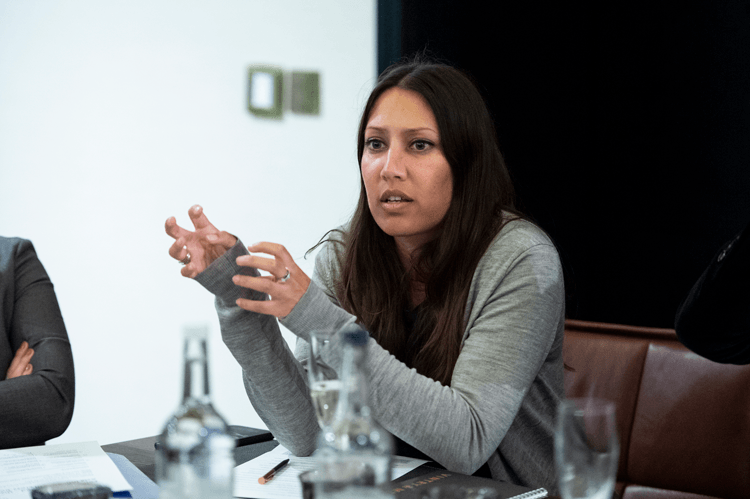
Paul Harvey: [I have heard it said that] Chinese firms do not pay sell-side adviser fees. I am curious: do they pay legal fees?
Alex Novarese: It is often claimed that Chinese clients pay better rates to Chinese law firms and advisory houses than Western equivalents. How scientific that claim is, I cannot say.
Roger Barron: You have a pretty good view across the board in your position.
Alex Novarese: I have heard it from so many people, there must be something to it. In the European collapse of King & Wood Mallesons, late payment or write downs for the European side of the business [from Chinese clients] was one of many contributing factors.
Sonya Rogerson: Doing M&A in China, you need a different mindset. How you are going to do it is going to be different than in any other country. Successful M&A is thinking long term and building trust. Most successful British or Western companies that have done it have been investing in those relationships over ten or 15 years before they have then executed the M&A strategy, whether an acquisition, a joint venture or starting through alliances. There is a lot of sophistication in the Chinese market, particularly with advisers. Some of the fees the lawyers are getting paid are much higher than they are here in the UK so I do think the market is increasing in sophistication. Western boards need to understand that M&A is just done differently. What would be a Western risk to a Western company may or may not be the same risk. They are coming at it from a completely different perspective.
Roger Barron: A related point on that in terms of knowing: if you are a Western counterparty dealing with a Chinese counterparty, is there a question about knowing who your decision-makers are? I have heard that a few times with people saying, ‘I think I’ve been negotiating with the wrong person’.
Sonya Rogerson: It is quite unlikely you will know who the decision-maker is in all circumstances. It is about access, being patient and not necessarily making your returns as quickly as you might want.
Roger Barron: Just in terms of the payments world, is that something people run into: trying to second guess where the Asian buyers are coming from?
Natalie Salunke: For us it is more about simple economics. The targets in our pipeline just aren’t going to draw the returns we would expect so we are biding our time. It is more about investing in human relationships and acknowledging that this part of the world still places a lot of value in that. The American way may be a lot more process driven, but that doesn’t always work here. There is still this arrogance that, if you want to play with these guys, are you going to play their game or are you going to be the dominant party? If you are arrogant, you are not really playing the game so why would you come out winning?
Alex Novarese: It is interesting that the vastly differing timelines of certain state-owned Asian businesses and the short-term decision-making in public companies in many Western companies is one of many factors causing tensions.
Roger Barron: That is a really good point, whether it is family wealth, state-owned enterprises or government-backed business. Although there are many opportunities that being a listed company will bring you, they also do have advantages in what they can do too.
Alex Novarese: Perhaps we could spend a few minutes exploring opportunities of European and Asian investment back and forth.
Abhijit Mukhopadhyay: Brexit is creating a lot of uncertainty. In the Asian world, there is the India/Pakistan conflict. We are global investors. Geopolitics plays a very important role for us. If the geopolitical stability is not there, there is a big problem.
“We have to assess what price we are willing to pay to get access, because there surely is a price.” Parminder Nahl, Wyelands Capital
Parminder Nahl: There is opportunity because while some industries will still have the same issues about IP, there are other investment avenues that may not be impacted as much. This will largely be dependent on whether what evolves politically is genuine protectionism or paper tiger protectionism. We all know that there are huge opportunities. It is just getting a balance in a way that all parties are comfortable with the risks and rewards of doing business.
Some of the challenge arises because the Chinese do not presently need foreign investment as much as other countries. They have the cash whereas other jurisdictions want foreign investment and are more inclined to change their rules to match whatever they think is the common standard.
Alex Novarese: So the normal leverage is not there.
Parminder Nahl: Exactly. How do you then do that? It is just a longer process. As China’s role in the world changes they will need to reconsider how they interact with the wider world and it is conceivable that it may be in their interests to protect IP rights as they move up the value chain.
Until then, we have to assess ourselves what price we are willing to pay to get access, because there surely is a price. If you are going to do a deal in America, you have to accept that.
Roger Barron: The cause for optimism is the increasing understanding of how to execute those deals. The more people do those sorts of things, the uncertainty or room for misunderstanding dissipates. You will find that will happen too with the internationalisation of advisers.
Neel Malviya: The importance of joined-up thinking has never been more apparent. We do a lot of deals with Asian counterparties and having the wisdom in each continent, and being able to join up, is the difference between getting deals done and not getting them done.
Roger Barron: That is absolutely right. We have all been at negotiating tables where there has been a simultaneous translation going on across the table. That can be a barrier, but you get the people engaged, have some humour through the translator to the other side and, all of a sudden, the room starts melting.
Alex Novarese: Thank you all for your time.
The panellists
- Paul Harvey, group business development director, Arma Partners
- Neel Malviya, general counsel, EMEA and APAC, Moelis & Company
- Abhijit Mukhopadhyay, president legal and general counsel Europe, Hinduja Group
- Parminder Nahl, general counsel, Wyelands Capital
- Sonya Rogerson, general counsel/head of legal and compliance, Bank of China (UK)
- Natalie Salunke, European general counsel, Fleetcor
- Samantha Thompson, M&A and corporate legal head, Anglo American
- Roger Barron, partner, Paul Hastings
- Regina Engelstaedter, partner, Paul Hastings
- Matthew Poxon, partner, Paul Hastings
- Hamish McNicol, corporate counsel editor, The In-House Lawyer
- Alex Novarese, editor-in-chief, The In-House Lawyer


